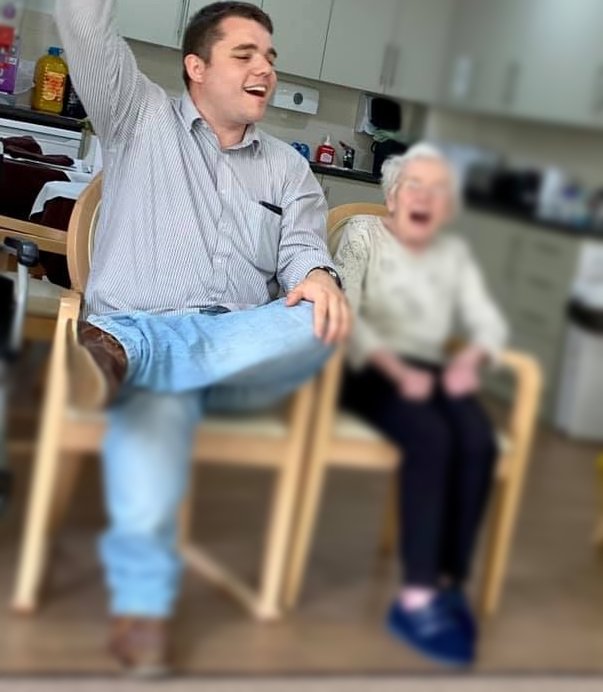ABOUT MEMORY CLUB
SO, WHAT'S IT ALL ABOUT?
As we age, our brains lose their sharpness through the natural process of getting older. But in patients with cognitive impairment (Alzheimer's, Dementia etc) nerve cells lose their ability to communicate with one another and start to die.
The result is that the brain is unable to continue to function as it did previously and the individual may start to show degenerative symptoms such as memory loss, poor coordination, confusion, aggression and an inability to communicate thoughts and desires.
However, the brain is extremely clever and resilient. Remarkably, it is able to rebuild and rewire pathways of communication where they have previously worn out. Scientists have shown that stimulatng the brain through activities such as drama and music may not only increase cognitive ability but may also slow the progression of dementia. Devised specifically (but not exclusively) for sufferers of dementia,
The Total Drama Technique aims to challenge and stimulate the mind, promoting a sense of wellbeing and contentment. It allows for a system of voluntary teamwork and cooperation where, in an improvisatory setting, a group of participants can be opened up for action, spontaneithy dialogue and communication. Growth and development in this way not only allows people with dementia to begin to see the world in a new, more positive light.
THE SCIENCE
The Total Drama Technique uses a system of cognitive restructuring to improve the quality of life in people with dementia. Quantitiative trials during the development of the programme demonstrated that when the Technique is practiced regularly and consistently, there is a substantial increase in the ability of dementia patients to communicate and work as a team, and thus the potential exists for patients to be able to live longer, perform more tasks for themselves, and consequently maintain their independence and dignity.
This is supported by anecdotal feedback and the experience of session participants and their relatives. This is also supported by studies such as:
1) De la Cruz (1995), who reported significant improvements in social skills (children) after a 12 week creative-drama programme;
2) Lepp et al (2003), who showed an improvement in the fellowship, communication, emotive expression and self-confidence of dementia patients;
The Total Drama Technique works with the parts of the brain still functioning well, to encorage people with dementia to interact with other people, where they might otherwise never meet within a socail context. While the Technique can be practiced at home, it is unique in that it encourages entire groups of people to communicate and socialise with one another, particularly those that are housed 'in ward' together and those that live together in a care home or other social setting.
Much of the counter-productive and dysfunctional behaviour of people with cognitive impairment is due to frustration caused by a lack of physical coordination, memory problems and the inability to perform everyday tasks effectively and efficiently. People who are already under stress find learning and cooperating more difficult because of increased adrenaline and corticosteriod levels produced in response to stressful situations (Smith, 1996).
Our programme works by directly stimulating an area of the brain to produce a second set of chemicals to counteract the first, suppressing stress levels and opening the group up to interaction and communication in a more productive manner. The Technique is designed to be friendly, informal and, most importantly, fun!
To find out more about the development of the resources used, or to discuss booking a free,
no-obligation initial session for your provision, CLICK HERE to contact us.


